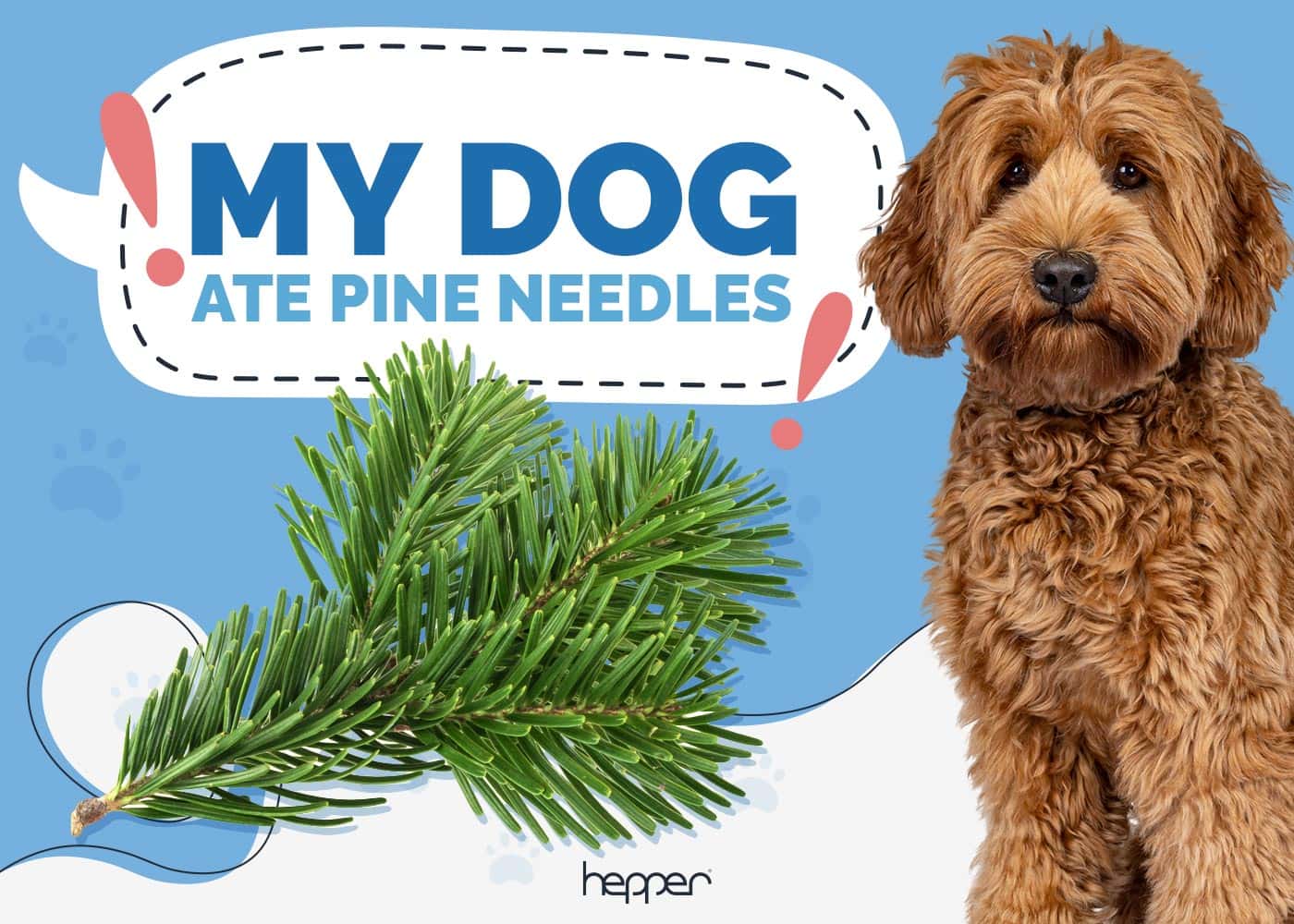My Dog Ate Pine Needles, What Should I Do? Vet-Approved Explanation
Updated on

As strange as it seems, dogs do eat pine needles from time to time. A curious dog might chew on the Christmas tree or the pine in the backyard. There are several concerns regarding this, from mouth and paw wounds to allergic reactions from the pine oil to severe gastrointestinal issues. Some problems might not be apparent right away. Therefore, we strongly urge you to contact your vet or go to an emergency veterinary clinic for treatment.
Skin and Mouth Wounds
Your dog may spit out the pine needles or vomit because of the foul taste of the oil. However, the more contact with the irritant, the more likely it is to cause injury from the sharp needles and sap.
The concern is with the needles puncturing the mucous membranes or skin around your dog’s mouth. Wounds here are prone to infections that may take some time to develop. However, a risk exists with the needles getting caught in your pup’s throat. Signs of this include retching, gagging, and pawing at their face.
Your dog may have held a branch down to chew on the needles. They could also hurt their paws or get stuck within their pads. You may see visible wounds, or your pet may limp and act like it’s in pain when putting weight on an affected foot.

Irritation and Allergic Reactions
The amount of exposure to pine oil is a critical factor for skin irritation and allergic reactions. Pine oil is toxic to cats and dogs. A sensitive pet may even have a negative reaction with very little skin contact.
Signs of atopic dermatitis or an allergic reaction may include redness, swelling, and inflammation. They can cause intense itching, with your dog in obvious distress. In severe cases, it can cause labored breathing.
Gastrointestinal Problems
The risk of more severe gastrointestinal problems is the reason behind our suggestion to seek veterinary help immediately. We mentioned the respiratory distress caused by an allergic reaction. There’s also the chance of poisoning if your dog ingests a lot of pine needles. This isn’t as worrisome as pine essential oils, however, because of the lower concentrations. Regardless, pine needles are problematic.
If your pet ingests a lot of them, they can cause an intestinal blockage, which is a medical emergency. An abscess that develops from the damage the pine needles cause your dog’s GI tract could also lead to a different type of blockage from the swelling. Several serious complications are possible, no matter what kind of issue you’re dealing with. Vomiting is often the first thing you may notice.
- Loss of appetite
- Lethargy
- Abdominal pain
- Dehydration
- Shock
A GI obstruction is fatal if left untreated. Remember that the longer a blockage resides within your dog’s body, the greater the risk of additional injury and complications. It also increases the likelihood of a reaction to the pine oil and its potential toxicity.
Final Thoughts
A dog’s tendency to gulp its food—and other random objects—down often gets them in trouble. They may eat enough of something they shouldn’t that causes problems ranging from minor to serious.
Pine needles are not safe for your dog to consume. Their sharpness raises a red flag for external and internal injury, their oil content can be irritating or even dangerous, and, lastly, the risk of a GI obstruction means you should seek out immediate treatment.
See also:
- My Dog Ate a Rose, Do They Need to See a Vet? The Interesting Answer!
- My Dog Ate a June Bug! Will They Get Sick?
Featured Image Credit: Pixabay












